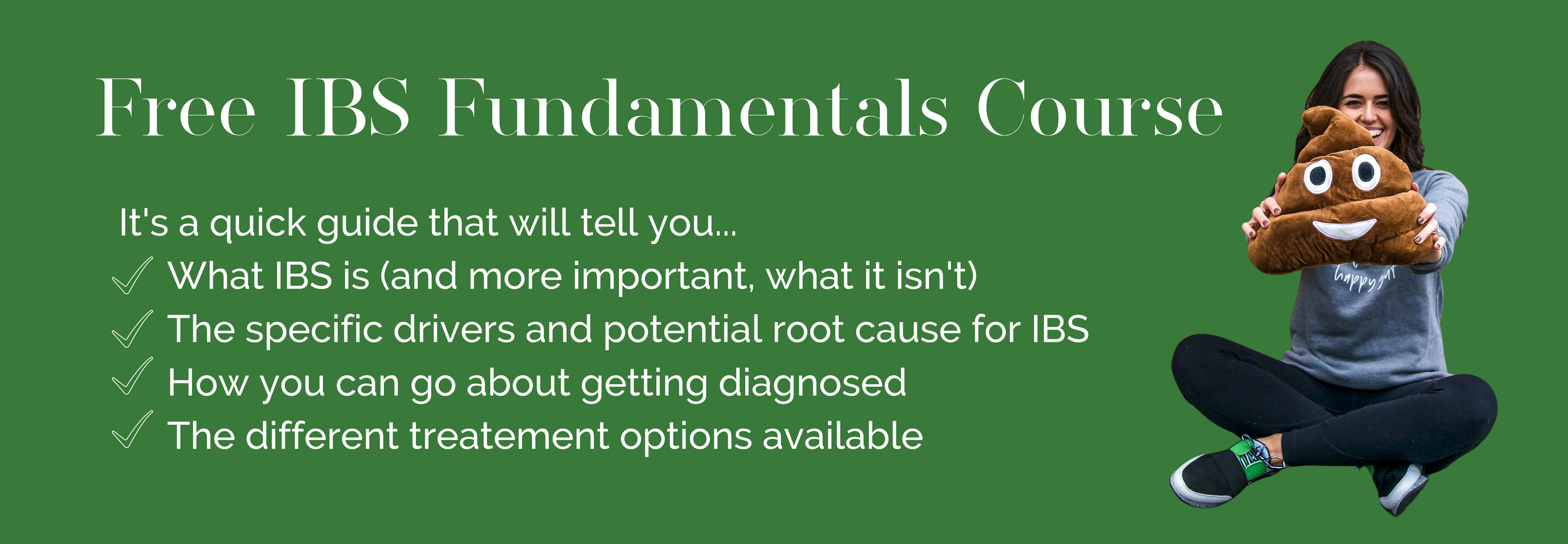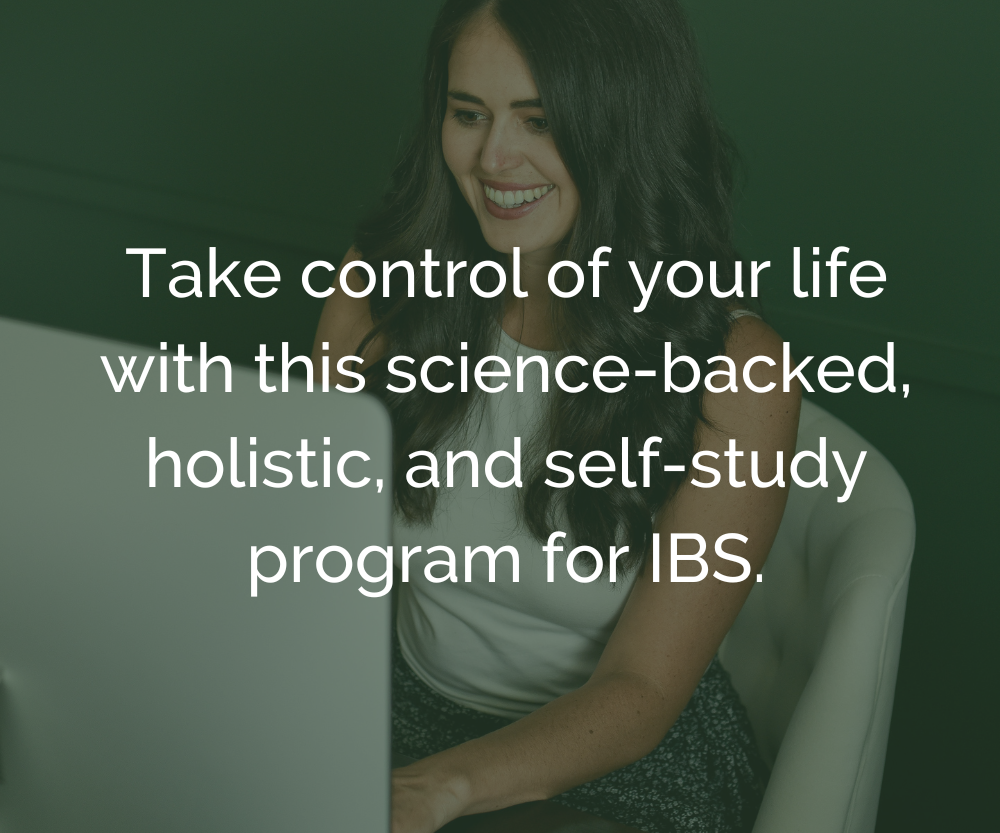How to Deal with Food Fear and IBS
This is a common experience for those with irritable bowel syndrome (IBS) and other digestive conditions, including inflammatory bowel disease (IBD), gastroparesis, reflux, and celiac disease. So if you’re experiencing it, you’re not alone!
What is food fear?
Food fear, also called food phobia or food anxiety, is when you experience intense fear or anxiety when it comes to certain foods or eating in general. This fear can range from mild discomfort or nerves to a severe panic attack and can greatly affect your quality of life. This can lead to isolation, poor nutrition, and strained relationships.
Food fear may present as a physical reaction and fear response to eating, a specific food, or certain situations. It can also present as avoidance which you may deem as being “cautious” in order to survive. This presentation of fear is less obvious and can easily be masked as making “smart choices” versus being controlled by the underlying fear.
What’s your poop personality? Find out here!
Where does food fear come from?
Food fear can stem from a variety of causes, including past traumatic experiences, and cultural or societal influences. Examples:
Choking on steak when younger and afraid to eat meats now
Got food poisoning eating out and now unable to trust that restaurant or any food not prepared by you
Had a flare related to meal or type of food, and now avoid it at all costs
Simply knowing something may cause harm - misinformation online about foods that are toxic or damaging, or knowing common IBS triggers.
For those with IBS and digestive conditions, the fear typically stems from a reaction they have had in the past to a specific food, or just the fact that they have had reactions they believe are tied to foods.
Because of this, many with IBS may experience fear of eating in general, due to the unpredictability of their symptoms and the fear of having an "accident" in public. Research shows that around 65% of those with IBS believe their symptoms are due to food, even though we know food is only one IBS trigger among many others. This can lead to anxiety and avoidance of social situations with both family and friends, which can greatly affect quality of life.
Another form of food fear is a fear of eating in public or in front of others. This type of fear, known as social anxiety disorder, can be especially debilitating for those who struggle with it, as it can greatly limit their ability to enjoy social gatherings and events.
This is unique because the food isn’t the root of the fear. It’s the anxiety. This blog post on anxiety may be more helpful if this is the type of fear you’re experiencing.
Food fear can also manifest as an obsession with certain foods or a compulsive need to control food intake. This type of fear can be especially dangerous as it can lead to serious health complications, including malnutrition and even death. This is where we see food fear become an eating disorder. One of the more common eating disorders rooted in fear of food and more present in IBS is called ARFID - avoidant restrictive food intake disorder.
Signs of ARFID include:
Progressive worsening of food restrictions due to fear
Increased intensity of panic, nerves, and anxiety before eating
Feeling sick due to anxiety before you can finish a meal
Obsession with food labels and finding lists of foods that are “good” or “bad” for the goals you have
If ARFID is present, this should be addressed by a team of a dietitian, therapist, and possibly a gastroenterologist. Ideally all who are knowledgeable in both the gut disorder/condition present and in ARFID.
It’s important to remember that eating disorders, including ARFID, aren’t a choice or something you are “bad” for having. They develop over time and are influenced by so many factors. ARFID, in particular, is typically influenced by very real symptoms and a desire to control those. Removing shame and increasing self compassion is a huge part of recovery.
Food fear often results in physical symptoms such as nausea, stomach cramps, and sweating when you are faced with the food or situation you fear. These symptoms can be treated with therapy, medication, or a combination of both.
How do you treat food fear?
Treatment for food fear in those with IBS could involve a combination of therapy, medication, and diet changes. Cognitive-behavioral therapy (CBT) is particularly effective in helping individuals to manage anxiety and improve relationship with food. In those who have had experiences of choking or food getting stuck, or those who have strong sensory aversions to foods, there may be a benefit in feeding therapies. This is often done by a speech language pathologist or occupational therapist.
Medications such as anti-anxiety medications can also be helpful in reducing symptoms of anxiety and depression. This would be tailored to you by your trusted medical providers, ideally a psychiatrist.
Where you can start today to being overcoming food fear:
Acknowledge the fear versus ignore it and find another truth to fixate on instead (ex: I have fear AND I am choosing to eat this meal to nourish my body well).
Go slow with what you’re adding or the steps you’re taking with food introductions. This helps you build trust and confidence with your body.
Celebrate small wins and every step of progress as you do start challenging your fears.
Are you frustrated with your IBS symptoms? Do you desire to be confident in your food choices? Do you want to have a healthier relationship with your body and diet? Are you ready to take control of your IBS?
Guides:



